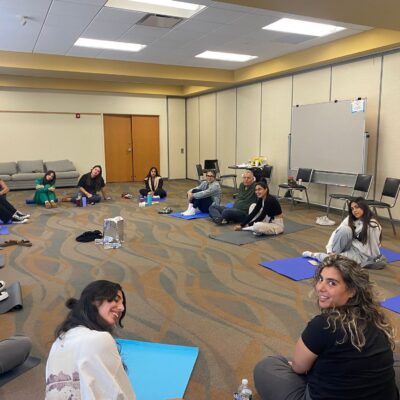#ShareHerStory Returns to Spotlight Jewish Women of Color, Indigenous, Mizrahi, and Sephardi Women

Whether leading spiritual communities, fighting racial injustice, creating powerful works of art, or even saving the Jewish People millennia ago, Jewish Women of Color, Indigenous, Mizrahi, and Sephardi women have for centuries been leaders, teachers, storytellers, and changemakers in the Jewish community. All too often Jewish holidays, narratives, and spaces fail to celebrate and amplify these critical stories.
#ShareHerStory, an initiative powered by Jewish Multiracial Network, Jewish Women’s Archive, and Repair the World, is inspired by the story and legacy of Queen Esther, a Jewish Woman of Color, who risked everything for her people. This Purim’s campaign shares the stories of ten modern day Jewish Women of Color who are leaders in the Jewish community. Short, easy-to-share vignettes tell the stories of these powerful Jewish leaders and plays on the tradition of sharing mishloach manot on Purim.
“#ShareHerStory is a powerful way to more closely connect our Jewish community – all of us – to one another.” says Ilana Kaufman, who was profiled in last year’s #ShareHerStory and is the Director of the Jews of Color Field Building Initiative. “After reading about my story and hobbies, I received an invitation from a Fourth Grader to visit his school and speak to his class about leadership. They asked about my love for gardening, if I had nightmares as kid, why I pace when I talk, and how I overcome the fear I face every time I do public speaking. #ShareHerStory invites our community to learn about some of our leaders – who we are, what keeps us up at night, and how to be our most confident and authentic selves.”
In 2019, ten phenomenal women are being highlighted through the #ShareHerStory effort, including (for the full stories, please visit weRepair.org/Purim):
- Born in India, Siona Benjamin is a NY-based artist whose work combines imagery of her past and future, and is inspired by transcultural myth & iconography.
- Daughter of an Iranian teen-idol and an American folk-singer, Rabbi Michelle Dardashti’s Judaism is multicultural, meta-denominational, and musical. She is rabbi of Brown RISD Hillel and Associate Chaplain at Brown University.
- Erika Davis is a birth and postpartum doula, childbirth educator, and yoga instructor. She aims to confront racial disparities that impact black birthing people.
- This year, Alma Hernandez became the first Jewish Latina lawmaker ever elected, serving in the Arizona House of Representatives.
- Tarece Johnson is an activist and leader in her NAACP & Alliance for Black Lives chapters. She founded the Global Purpose Academy, which provides diversity education.
- Rabbi Sandra Lawson is a veteran of the U.S. Army and former Investigative Researcher for the Anti-Defamation League. She currently works at Hillel at Elon University.
- SooJi Min-Maranda is the executive director of ALEPH: Alliance for Jewish Renewal. In 2008, she won the Asian Health Coalition of Illinois Outstanding Community Health Advocate Award for her public health work.
- Tamara Podemski, Anishinaabe/Ashkenazi multidisciplinary artist, has received praise for her work on stage, on screen, and in the recording studio.
- In 2015, Rabbi Mira Rivera became the first Filipino-American woman to be ordained by The Jewish Theological Seminary. She’s the co-founder of Harlem Havruta, a space for Jews of Color, allies, and co-conspirators.
- Sabrina Sojourner recently launched a tool to help congregations discuss inclusion. She calls on the Jewish community to stand united against racism, sexism, and anti-Semitism.
“To this day I receive photos of #ShareHerStory from friends and strangers who are struck and touched by the statement it made,” adds Rachel Sumekh, who was highlighted last year in #ShareHerStory. Rachel is the Founder and CEO of Swipe Out Hunger. “It put our stories front and center, which gave others – women, young men, immigrants – permission to add their stories to the room. #ShareHerStory reminded me that my story, too, deserves space in the mainstream.”

 Add EJP on Google
Add EJP on Google









